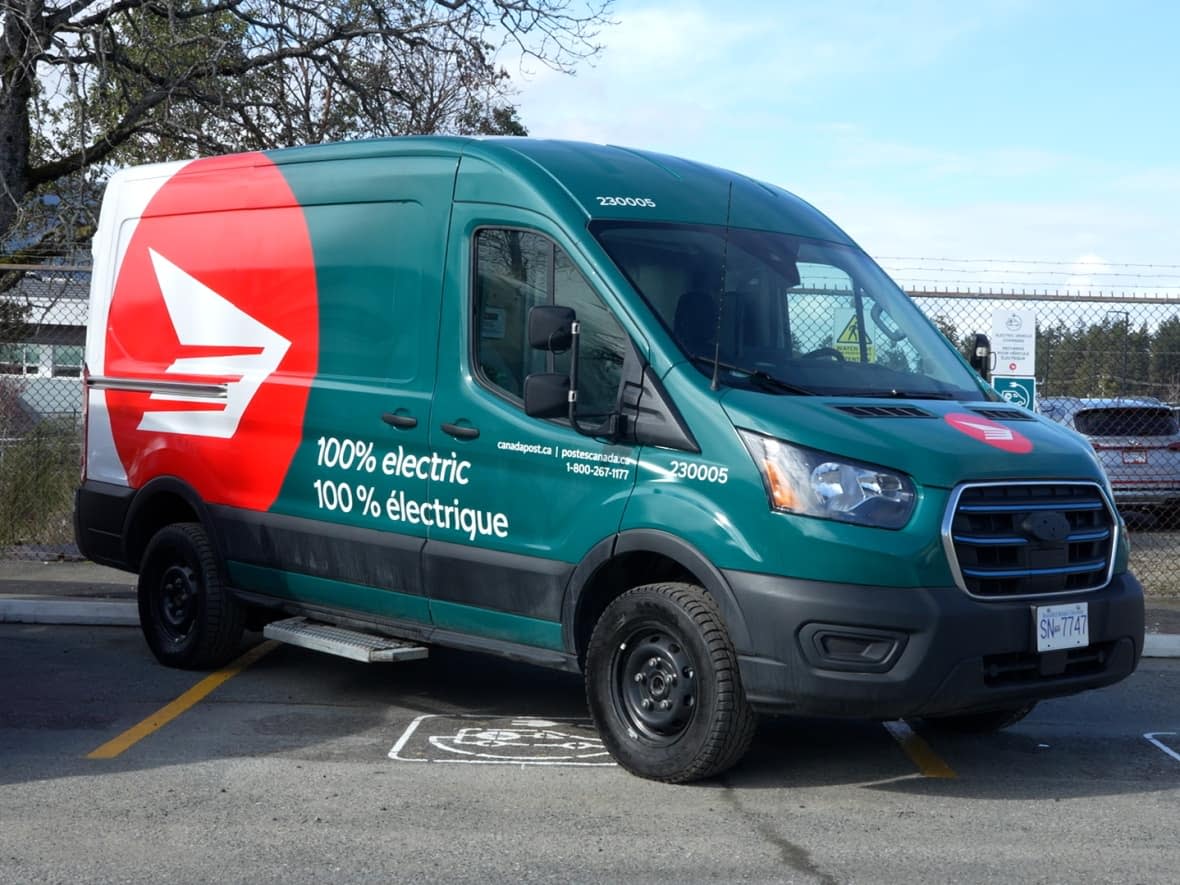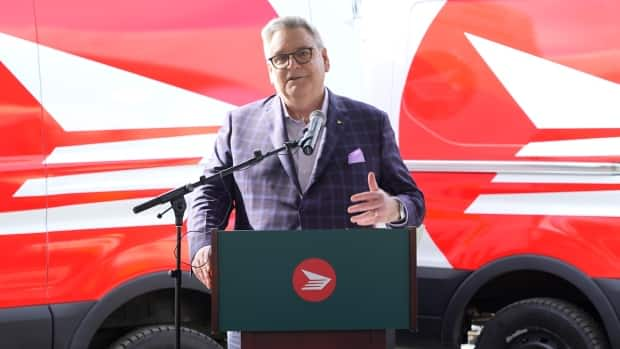Canada Post's first all-electric delivery fleet rolls out on Vancouver Island

Canada Post unveiled its first fleet of battery-electric delivery vehicles in Nanaimo, B.C., on Thursday.
The rollout of the 14 cargo vans is part of the Crown corporation's commitment to electrify its national fleet of 14,000 vehicles by 2040.
"Last year, the corporation set aside more than $1 billion to cut emissions and move forward on the electrification of its last-mile fleet," said Suromitra Sanatani, chair of Canada Post's board of directors.
"Canadians expect their postal service to play a leading role in the country's transition to a low-carbon future. It's a responsibility that Canada Post embraces," she said.
Sally Dam, Canada Post's director of urban delivery strategy, said Nanaimo was chosen as the test location for future electric fleets partly because of the clean energy B.C. offers through its hydroelectric network.
Canada Post isn't the first organization on Vancouver Island to begin the transition. West Shore RCMP and transport company Coldstar Solutions Inc. introduced their own electric vehicles earlier this year.
The moves come as Canada works toward a goal of net-zero carbon emissions by 2050.
In B.C., businesses are eligible for rebates up to $3,000 on a newly purchased electric vehicle.
Just 14 of many
With an eye-catching teal green design, the Nanaimo depot's electric cargo vans are replacing the white internal combustion vehicles for urban collection and delivery services.
But Bob Freeman, local president of the Canadian Union for Postal Workers, says the majority of Canada Post's delivery vehicles in Nanaimo are still gas powered and he hopes that will change.

They include 19 rural and suburban mail carriers (RSMCs) who deliver mail in their personal non-electric vehicles to routes outside of Nanaimo city limits.
"Depending on their area, some [rural routes] could be up to over 100 kilometres," Freeman said.
"[The union] is hoping [Canada Post] is going to … either come up with an incentive for [RSMC drivers] to have electric vehicles or equip them with electric vehicles."
Freeman also wonders whether other Canadian communities will have as robust a power grid as Nanaimo to support an all-electric fleet.
"Like smaller communities, are they going to be able to [switch]? ... Are they going to have enough power to do that?"
'One piece of the puzzle'
Curran Crawford, director of the University of Victoria's Institute for Integrated Energy Systems, says the switch to electricity is just "one piece of the puzzle," but an important first step for the province.
"In British Columbia, because of our clean electricity grid, transportation is a big slice of the pie totalling, like, 38 per cent [of our carbon footprint]," he said.
"Ultimately you're trying not to burn fossil fuels and that's where our transport emissions come from."
Crawford says it's "encouraging" to see local and national companies take the initiative on Vancouver Island, and hopes it'll spark inspiration with other organizations.
"We need these first demonstration projects and companies getting [electric] vehicles into their fleet and getting experience with them is really the important piece," said Crawford.


